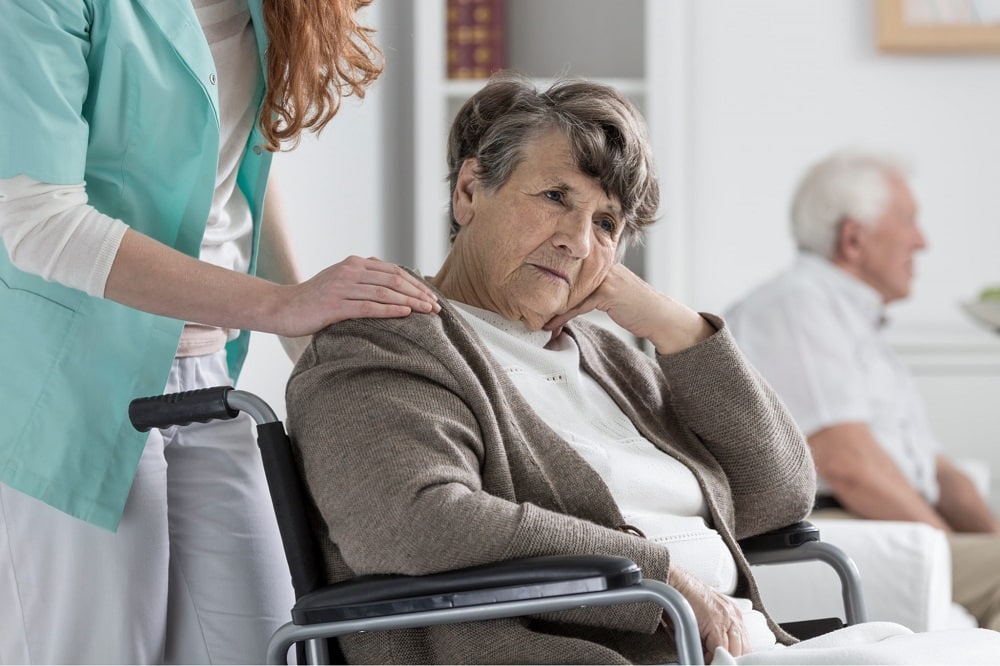It’s a sensitive topic that people don’t always know how to respond to. When you put your elderly loved one in a nursing home, you trust they will be well taken care of. Often, all goes well until you see the signs of something wrong. What can you do? How can you be sure it’s elder abuse?
We aim to inform you about what nursing home abuse is, how to spot it, report it, and seek legal help. There are civil and criminal liabilities to penalize those who would not protect senior citizens in nursing homes.
What is nursing home abuse?
Abuse of senior citizens comes in many forms. We’ll discuss five topics and signs to look for regarding elder abuse in nursing homes.
1. Physical abuse
There are tell-tale signs of physical abuse in the form of bruises, bone breaks, and scars resulting from punches, shoving, and kicking. Your loved one could appear frightened of being hit and be nervous around nursing assistants. Talk with your loved one about the signs you are seeing. If they are reluctant to discuss it, you could ask Adult Protection Services to intervene on your behalf. It is important to ensure that the physical signs and symptoms you see are not attributed to another condition. Your loved one could have a bruise from a fall. As long as the staff informed you promptly and took care of the injury appropriately, it may be a legitimate accident. Have a doctor examine the injury.
2. Sexual abuse
The signs of sexual abuse are different than physical abuse. You might first notice that the nursing home victim seems withdrawn, depressed, or confused. You could try and get the person to talk with you, but they may not want to or deflect from the subject. Actions such as unwanted kissing, fondling, and rape are signs of sexual abuse. You can report it as abuse to the Florida Adult Protective Services, who would record your initial call and send out a social worker to investigate the situation.
3. Emotional abuse
Changes in attitudes and behaviors can be a sign of emotional abuse, such as verbal abuse or intimidation tactics. A skilled professional must determine if these changes are related to emotional abuse. There could be other reasons for changes in behaviors, such as a change of medication or an undiagnosed illness. If you feel when you talk to your loved one that something is not quite right, you should discuss it with their healthcare provider. A doctor can also check for visible signs of physical and sexual abuse. You can also report it to the facility’s ombudsperson.
4. Neglect
Does it smell when you visit your loved one in a nursing home? Does the room seem dirty? Does your loved one complain they are hungry? Answers to those questions could be signs of neglect in the nursing home. A better way to look at this is by defining neglect as a “lack of care.” Is staff ignoring requests, seeming indifferent, or even hostile to questioning? Sometimes the elderly are afraid to speak up for fear of getting in trouble. That’s a clear sign something not right is going on and needs to be addressed.
5. Financial abuse
Depending on the person’s mental faculties when confined to a nursing home, they may not be in charge of their finances. Another person may have already been assigned to keep track of the elder’s finances to prevent any mistakes.
For seniors who are confined but still mindful of their surroundings and able to manage their finances, you will want purses and wallets kept away safely from prying eyes and the potential for theft.
If your loved one insists on keeping their credit cards and bank information nearby, it would be best to check that things are in order with the bank. Check for random charges or unexplained amounts missing from the accounts.
Warning signs of nursing home abuse
Another aspect of spotting signs of nursing home abuse is to evaluate the facility. Is it licensed or unlicensed? The quality of care can be hard to see when doing an initial walkthrough of the facility; however, it will become apparent with repeated visits over time how well your loved one is taken care of.
We suggest you use a checklist, such as the one provided by Medicare, as a way to record and report irregularities. If you see signs of neglect or other abuse, you can file a complaint with the Florida Agency for Health Care Administration.
How likely is nursing home abuse?
Unfortunately, nursing home abuse is on the rise in Florida. The Tampa Times reported cases have doubled since 2019, although it’s unclear why. We know that Florida has the highest number of seniors in all U.S. states.
Statistics from the National Council on Aging (NCOA), National Center on Elder Abuse (NCEA), and the World Health Organization (WHO) show that 15,000 elder abuse reports were filed in 2020. It’s a global problem not limited to any one country. The number is expected to rise as the population ages and more people are put in assisted care facilities.
What to do if you suspect nursing home abuse
You must keep in close contact with your loved one living in a nursing home. Your observations are what can help keep track of suspicious behaviors and signs of abuse. Gather as much information as possible to make a report by phone or online.
Reporting nursing home abuse
Florida maintains a 24/7 nursing home abuse hotline at 1-800-962-2873 or 1-800-96-ABUSE. You may also report online through the My Florida Families website, How to Report Adult Abuse.
Florida nursing home abuse reporting requirements
Florida law requires a person to report nursing home abuse even if suspected. It is a second-degree misdemeanor to fail to report any kind of elder abuse, per Florida Statute 415.111.
Nursing home abuse lawsuit statute of limitations in Florida
You can seek legal recourse and file a lawsuit against the nursing home, its employees, or its owner, but you must ensure that your claim is filed within the time frame allowed by law. The statute of limitations to file a nursing home abuse lawsuit in Florida is two years.
Get the help you need for nursing home abuse
Please don’t hesitate to contact Jack Bernstein, if you have questions surrounding elder abuse of someone you know. We can look at all the facts and help you legally recover the losses suffered.
Sources:
Critchfield, H. (2023). Florida Nursing Homes See Spike In Serious Violations.
Florida Adult Protective Services. (2023).
Florida Agency for Health Care Administration. (2023).
How to Report Adult Abuse. (2023).
Nursing Home Abuse Statistics. (2023).


